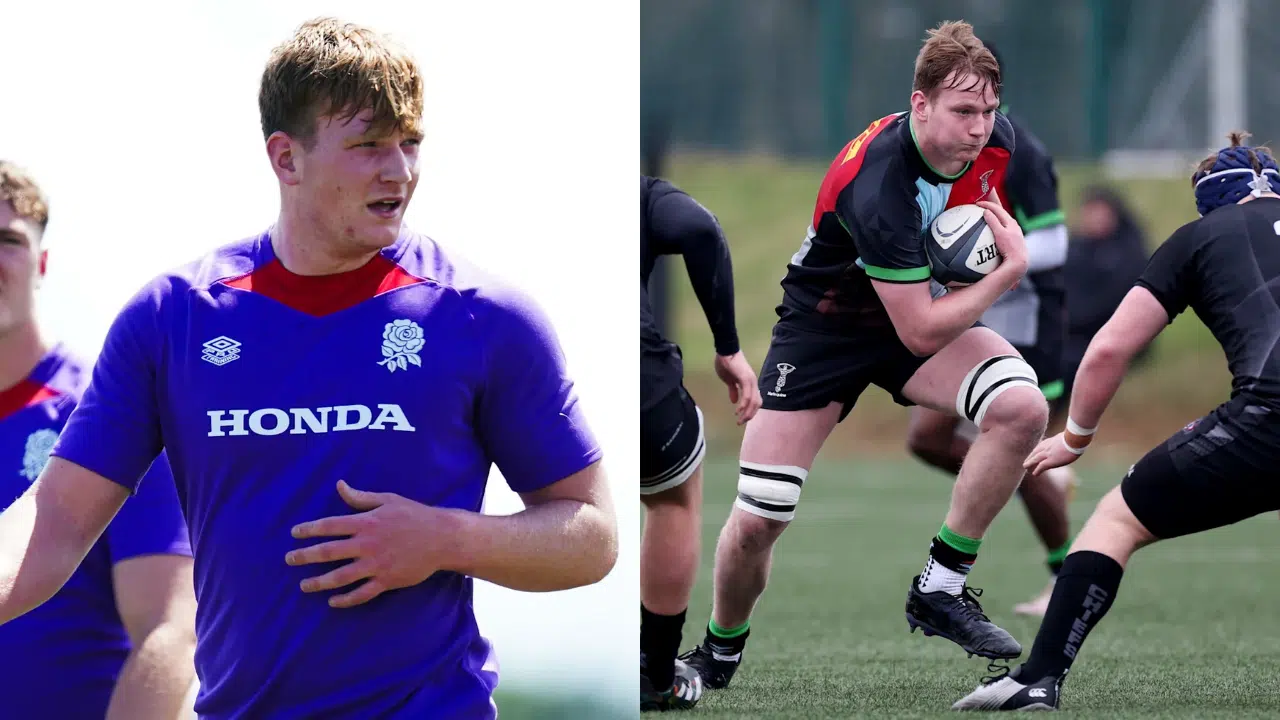
England u19s: remember the name elliot williams as young lock breaks through at quins - ruck
- Select a language for the TTS:
- UK English Female
- UK English Male
- US English Female
- US English Male
- Australian Female
- Australian Male
- Language selected: (auto detect) - EN
Play all audios:

YOUNG HARLEQUINS LOCK ELLIOT WILLIAMS HAS ALREADY ESTABLISHED HIMSELF AS ONE OF THE MOST PROMISING FORWARDS IN ENGLISH RUGBY. With a natural presence on the pitch and a composed approach
off it, Williams’ journey through England’s age-grade sides has been rapid, having earned his first U19s cap in March, aged only 17. __ He has captained England U18s and recently stepped up
to the U19s squad, continuing to grow without the armband but with the same sense of responsibility. Williams’ pathway into rugby was a bit different to what is usually seen. “My parents
actually met through basketball and tried to put us all through that route,” he explained. “But it ended up with us flowing through to rugby. And I play. Both my twin brothers, they’re 13
now, play as well. So we are quite a rugby family.” A player who thrives on physicality and forward fundamentals, he’s quickly made a name for himself through his dominant performances in
the set piece. “Probably one of my strengths, I’m good in the lineout,” he said. “Line out, have a good set piece and try to be quite physical around the pitch in breakdowns or in the
contact area. I try and pride myself on how physical I can be around the park.” He spoke on his transition between the age-grades at international level, and how the setup of the England
pathway system has benefitted his progression. “I think the 18s, 19s and 20s are all pretty closely linked. “You always meet the coaches on different camps, like Tofty (Mark Mapletoft) and
Andy Titterell always dropped down in some 18s camps, and obviously you know the boys that you’ve played with before… so it’s quite easy to transition through.” That transition from U18s
captain to part of the U19s squad has been smooth, and Williams sees the benefit of taking a step back from leadership duties to focus on his own development. “I quite enjoy it,” he says of
playing in the U19s. “I think it gives me an opportunity to learn from people that have had more experience than me and means I can focus a lot more on what I want to get out of the games
and focus on how I can get better myself.” But whether he’s wearing the captain’s armband or not, Williams is clearly a player who leads by example. He spoke about whether his mindset
changes depending on if he is captain. “I guess you get given the title of it, but I think around camp, you always have selected leaders that are going to drive standards in training, off
the pitch, that kind of thing. “So I think for me, it never really changed whether I was captain, whether I wasn’t. I always just wanted to help the team be the best they could.” It’s this
grounded, team-first mentality that makes Williams such an asset both on and off the field. He understands the importance of maintaining balance during intense camp periods. “I like to
have a good laugh when it’s the right time to. “But obviously, a lot of time you’re in camp preparing for a game… or preparing to get yourself there in the next training session. So knowing
when’s the right time to enjoy yourself… and then when to sit down. I think it’s a fine balance, but I try to get a bit of both in.” His recent exposure to higher-level competition has
also opened his eyes to the demands of professional rugby. Williams was part of the second annual RFU front-five specialist camp last September. “That camp was boys from 18s and 19s, so you
got a bit of an insight into how it was a higher level when boys that have been in the professional environment a for longer time. “In the lineouts, you’re getting thrown it a lot higher,
in the scrums, you’re hitting a lot harder. But it’s just a good insight on where I’m hopefully going to be in a year’s time now.” Williams relished the opportunity to improve his game
through focused technical work. “We went through a lot of lineouts on one day, scrums another day, and then tight five contact areas, so around our breakdown. “It was a bit of tackle
attack and a bit of carry attack around trying to score tries as well.” EDITORS PICKS:
